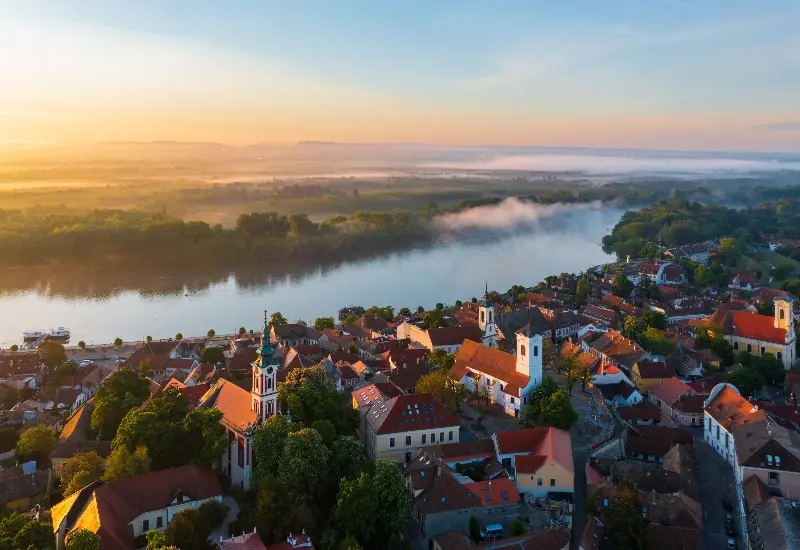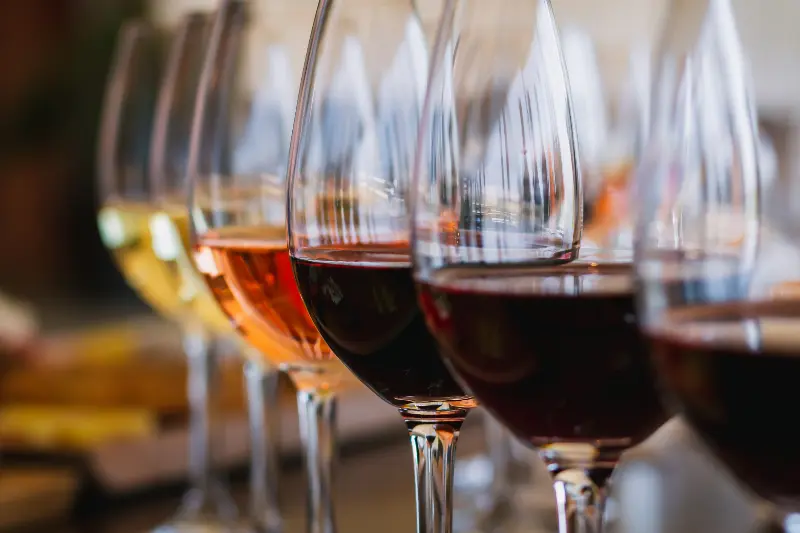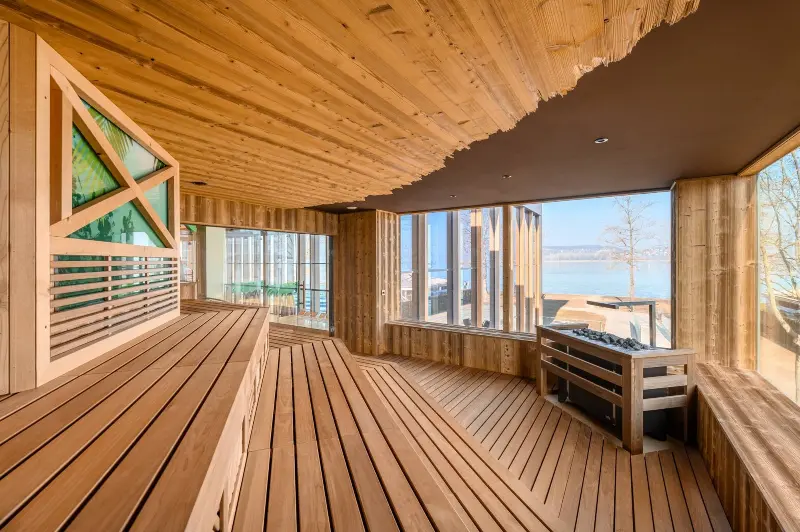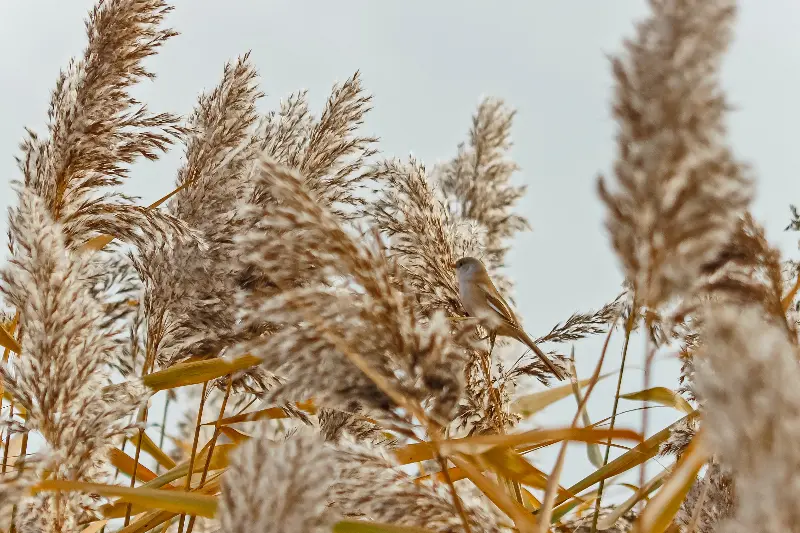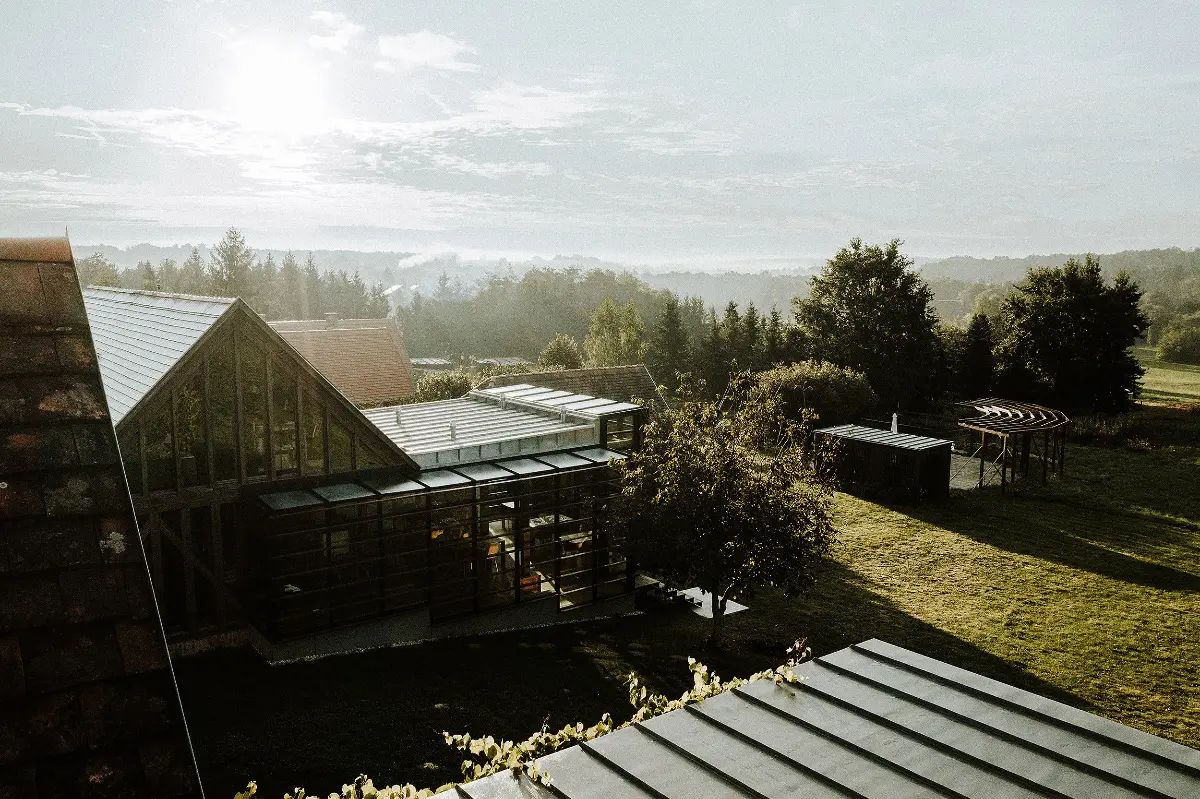
Helyszín címkék:
When nature is the source of inspiration
Francisck Réka Alíz
Looking at your Instagram profile, the pages you follow already tell a story about you: mushrooms, Őriszentpéter, Kairo, Oslo, Copenhagen, Mexico. Help me sort them out! Let's start with Mexico - what story would you share with us in connection with it?
I married a Mexican girl: I met Yazmin Salazar here, but later we worked together in her mother country. She was an assistant chef at the time, and no one in the kitchen spoke English except her, so I wildly learnt Spanish while we worked 6 days a week (except for the main season in December, when there was no day off at all). It was exhausting, but I enjoyed the course, in the evenings after work we somehow still had the energy to go out for tacos. I have always been attracted to different cultures, so after the pandemic, when it was easy to travel, I went to Cairo for 2 weeks. I started taking pictures with an analogue camera at the same time. Of course, in addition this, I tried to taste as many foods and ingredients as possible.
These international flavours and impressions are often manifested in the form of dishes that come out of the kitchen of Pajta.
What about Oslo?
Oslo was an important stop in my life: I had the opportunity to intern at the 3-Michelin-star Maaemo for 2 months. Before that, I did not even have the opportunity to enter the kitchen of a Michelin-starred restaurant, not to mention a 3-star one that is among the 50 best restaurants in the world. What I saw there completely captivated me: accuracy, order, atmosphere, teamwork - I knew that this is how I wanted to work. Later, I also managed to get to the Danish Noma restaurant for 3 months, where I also learnt a lot. In the restaurant of René Redzepi, the menu changes drastically with the changing of the seasons, and while seafood was the focus in the winter months, the emphasis was on plants from early summer to autumn, and meat, game and forest season from autumn to January. I just assisted with the latter, which is very lucky: perhaps this best describes the opportunities that are available here in Pajta and its surroundings.
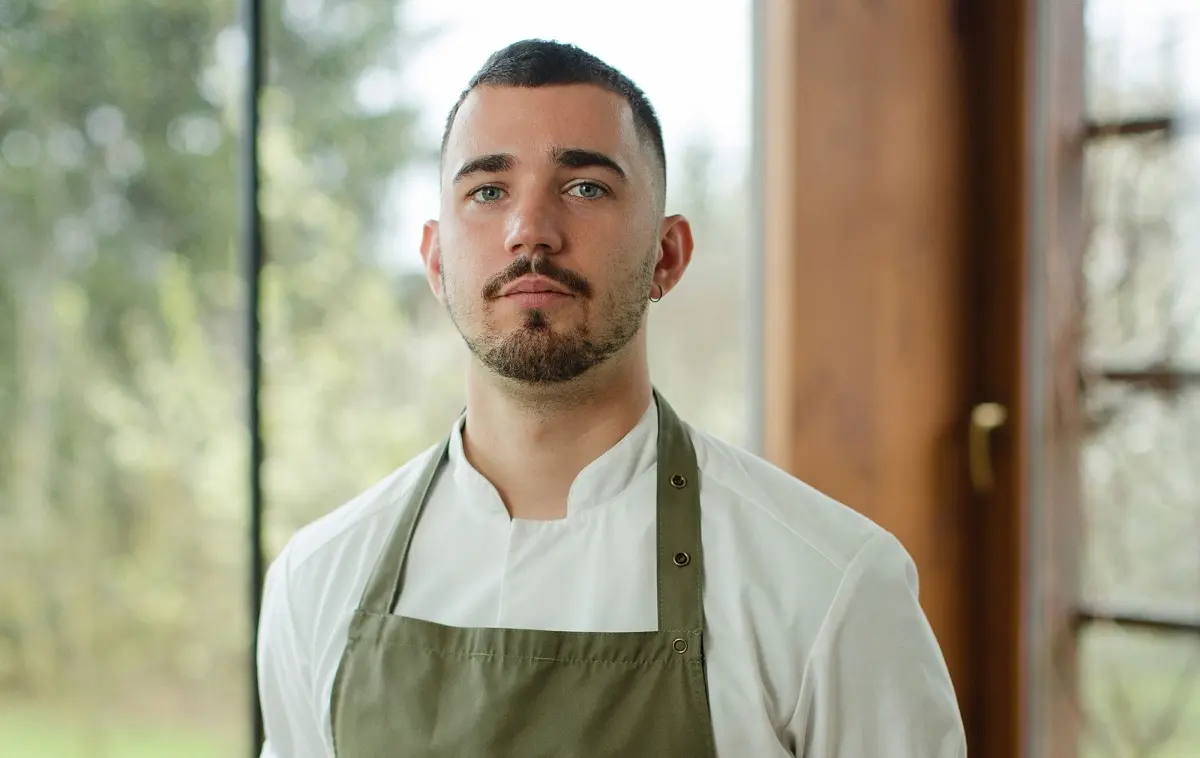
Along these, a special career emerges. Have you missed a place and/or a person what or who was really decisive in your professional development?
I have always connected professional development with experiencing new things. I was greatly influenced by Anthony Bourdain, his book was one of the first books I read when I started my career. Somehow the attitude he represented stuck to me: to always be open and to have a desire to learn about other cultures and to dare to jump into the unknown without knowing how I will get out of it. For example, when I went to Maeemo for an internship, I had only been a chef for 2 years, I did not speak much English, and I did not have any money. When they confirmed that I could go, I took the cheapest accommodation that was available on Airbnb and started attending English classes at home.
Why do mushrooms get so much attention from you?
I have always liked working with mushrooms, so there was no question that when I arrived at Pajta, a mushroom dish would be on the first menu. By the way, a lot of mushrooms grew that summer, and during a walk in the forest, my wife and I got completely preoccupied with mushroom picking. We enjoyed it very much, we were able to completely relax during it. On days off, we could not wait to go out into the forest. Of course, we did not pick mushrooms for food, but I became more and more interested in which ones were which and whether they were edible. From there, it was only one step to sign up for a basic course and go on guided mushroom tours. That is how mushroom picking became my hobby, as a matter of fact. It is a lucky situation that my godmother and her husband are both mushroom inspectors, and my cousins are also qualified mushroom pickers.
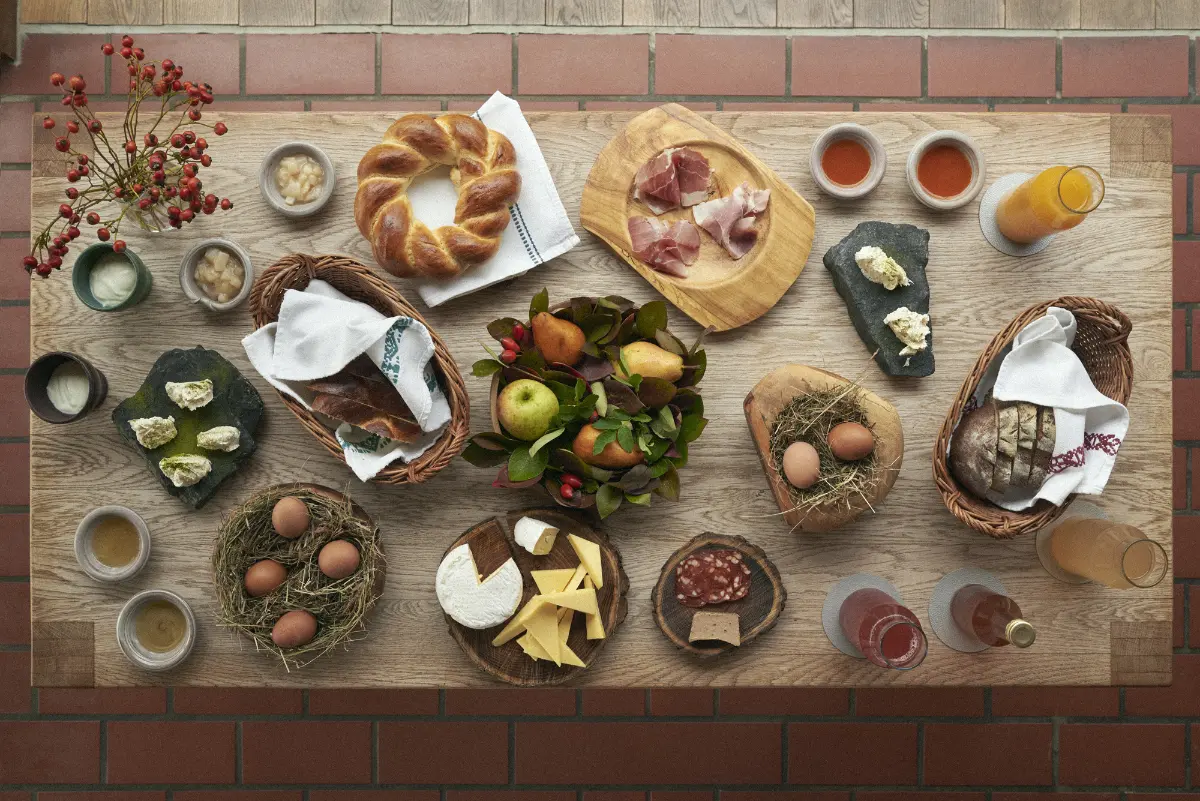
You are constantly learning - but how does it feel to teach?
As a student, I was not a particularly good student, I did not really feel like doing anything that did not keep me busy. However, if something interested me, I threw myself into it. Even today, I still feel it is important to keep learning professional things, just like, for example, a foreign language. I think it is hard for many people to get them to learn something just by making it compulsory for them, it never worked for me either. I try to encourage my colleagues to improve, but rather by making the tasks interesting for them. As it is said, the surrounding is important. Or the serving. In every sense.
Do you still not cook from recipes?
Actually, apart from the dessert course, we do not really use recipes. I think that in the profession of a chef, the emphasis is on techniques, as well as knowledge of raw materials. You can obviously learn this for a lifetime, and it is much more exciting and interesting than gram and measure. I like to make the same thing several times in different ways: always changing a little, experimenting.
What does fine dining mean to you, and what do you want to show and communicate through it?
By fine dining, I do not primarily mean expensive menus or plates decorated with tweezers and flecked with puree - although small details are important, because they can make the experience even more personal. I like to compare fine dining to theatre, because I think it is done well if it entertains and if it can tell a story, whether it is about the ingredients, the destination, the producers, or even the chef. The food - but also the milieu and the service - must reflect the traditions and culture of the area. In fine dining, it is expedient and expected that the guest receives full attention from the moment they enter the door, and also that they leave feeling gorged.
And what does Pajta mean to you??
Pajta is a restaurant in an environment where everything is provided for me as a chef to run a well-functioning, really high-quality kitchen. Pajta is a storehouse of possibilities. In addition, it became completely united with the owner couple, Flóra Kvaszniczáné Marjai and Ferenc, as well as with the approach and style represented by them.
What do you think is the strength of the Őrség and Őriszentpéter?
Beautiful forests, lots of mushrooms, extremely colourful wildlife – for me, this is the essence of Őrség.
Őriszentpéter is beautiful, undisturbed, tranquil, and at the same time it is the centre of the farming community of Őrség, with a variety of decent primary producers and excellent products. We work with many of them, for example, without any need for completeness, with the Sári couple from Bajánsenye, during the raspberry season, with József Cserkúti, whom the locals only refer to as "Józsi Málnás". The Németh Porta and the Róbert Gida goat farm are our suppliers, as is the organic gardening in Ivánc, where the farm is staffed by people living in the House of Care for the Disabled and the Elderly.
You once said you were a bit hyperactive. How do you "move down" your energies, and how good is the immediate environment for this?
It is true that I am not the couch potato type. I always try to occupy myself with something, my rest is mostly active. Even after a tiring week, I usually get up early. We hike or just wander in the forest with my wife - here in Őrség we can find wonderful terrains for that. Sometimes we go to Esztergom to play squash, and from spring to autumn I often get into the saddle and ride the country roads in my spare time. I like going to photo exhibitions very much, I like contemporary photography. In order to discover new flavours and get new impressions, we go to restaurants, popping up in different parts of the country.
